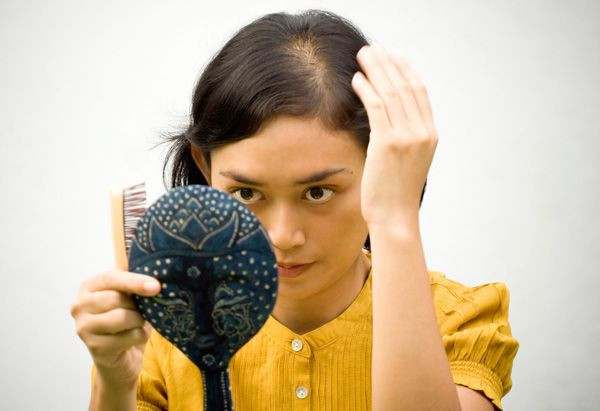Hair Growth Supplements Are A Hoax: Save Your Money — Using Pills Doesn't Lengthen Or Thicken Your Hair

Women in many cultures have become the standard of beauty. They are judged on all aspects of their physicality, which, in previous times, would play a role in determining their femininity and, ultimately, their fertility. One aspect of beauty, which is not discussed openly because many people are not aware of its prominence is female pattern baldness. It’s a condition called androgenetic alopecia, which affects one-third of women at some point in their lives. It can often lead to lowered self-esteem and depression. Pharmaceutical companies and other supplement and vitamin producers have marketed their products to a large number or Americans, particularly women, advertising that these supplements will lead to longer locks and thicker hair. However, most of these claims are false, leading many women to spend thousands of dollars yearly on false hope.
According to the National Institutes of Health hair loss in women can occur for a number of different reasons, including the levels of androgen (male hormone) changing, aging, and a previous family history of male or female pattern baldness. Other reasons can include: autoimmune diseases, too little iron, hormone problems, pregnancy, certain skin diseases that lead to the scarring of hair follicles, and syphilis. The problem is not very obvious at first, but signs of a receding hairline or a hair part get more apparent as the hair loss progresses. This might lead some women to become desperate and try over-the-counter vitamins and treatments in hopes of gaining back their lost hair — but they are often left disappointed.
“There are no specific vitamins that grow hair,” Dr. Zoe Diana Draelos, a consulting professor of dermatology at the Duke University School of Medicine told The New York Times. According to the American Academy of Dermatology, 30 million women in this country have hereditary hair loss.
But still, many Americans spend millions of dollars on hair loss supplements — $176 million annually — despite the fact it hasn’t really done much for their overall health or for aesthetics. The only approved treatment by the Food and Drug Administration for hair loss is minoxidil; a two percent concentration is recommended for women and five percent for men.
Another treatment has been with androgen receptor–blocking drugs such as spironolactone. However, this has not been approved by the FDA, and most of the research is based on anecdotal evidence.
So why are people falling into the trap of buying these hair supplements? It might be facing and convincing advertising, or it might be a placebo effect and the power of expectation. If people believe that something is working for them, their bodies can sometimes be reflective of these expectations. A 2004 study at the University of Michigan found that the placebo effect is related to endorphins — this might be the reason why people feel less pain, and they are happier. Thus, they are more inclined to believe that the multivitamin or supplement is actually working for them.
Good news might be on the horizon though: In 2012, a group of British researchers set out to determine if the popular eye lash growing liquid, Latisse, might translate to promoting human hair to regrow because it did wonders for eye lashes. The findings might be promising, but they are still going through more tests before the FDA will approve it for hair loss.
Dealing with hair loss can be a tough thing to deal with, but taking multivitamins won’t do much but burn a hole in your pocket. The best thing you can do is to get yourself checked out by your doctor. There might be some underlying issues that have caused your hair loss, so use minoxidil in the correct concentrations for your sex (using five percent on a female can cause an overproduction of facial hair). If all else fails, trying a new haircut or a new way of styling your hair might just do the trick.



























